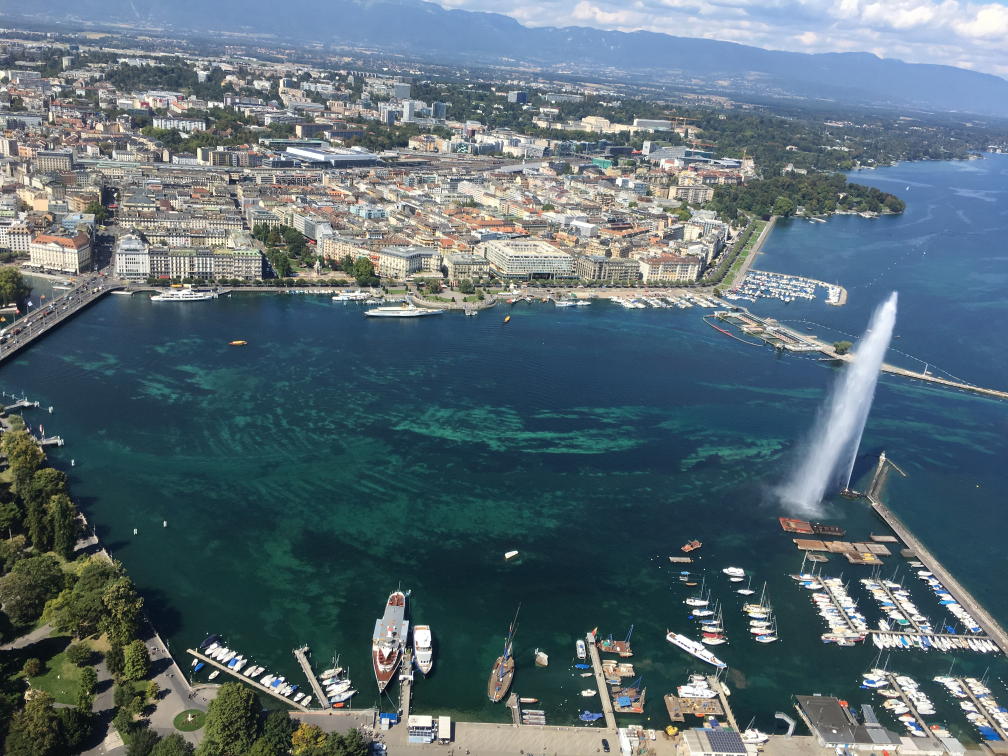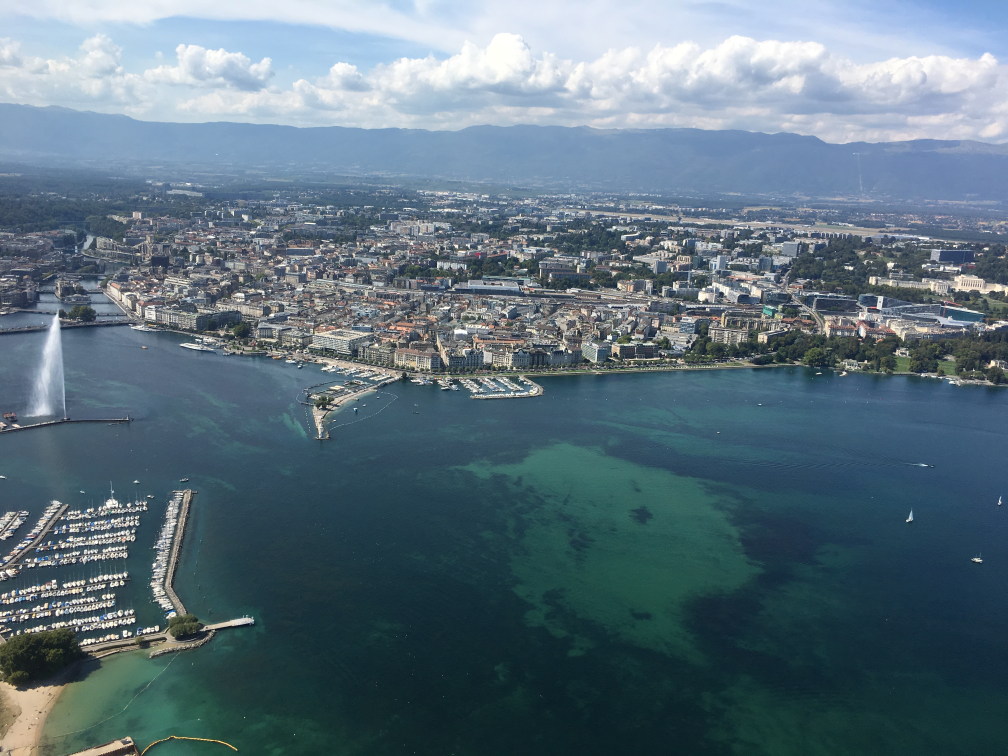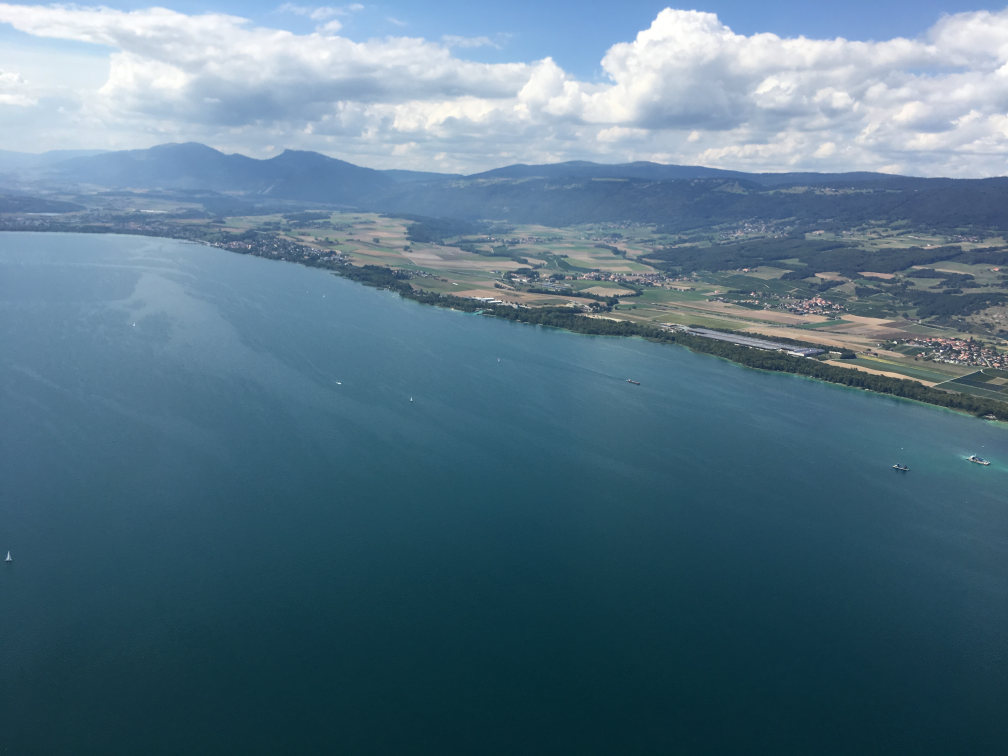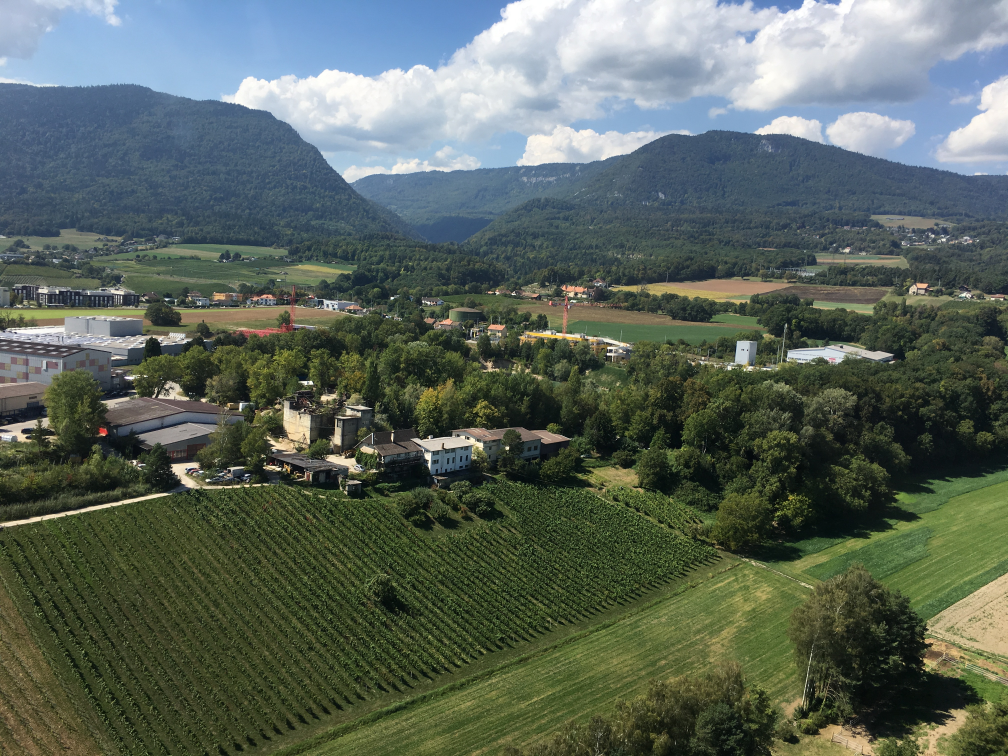

Thursday, 21 May 2020, marks the United Nations’ World Day for Cultural Diversity for Dialogue and Development. This year raises the question: why does cultural diversity matter? Col (GS) Christian Bühlmann, GCSP’s Head of Diplomatic Dialogue, shares his experience of learning about and understanding cultural differences in order to succeed in his work.

Quels sont les liens entre la diplomatie et le militaire ? Que font des militaires dans les ambassades ? Quelles formes de collaboration avec eux au sein d’une mission ? Ces questions, sous une perspective suisse, forment l’ossature de cette présentation.
Webinaire donné virtuellement au GCSP le 12 juin 2020
![[REPOST – gcsp.ch] Security dialogue with the South Korean Institute of Foreign Affairs and National Security [REPOST – gcsp.ch] Security dialogue with the South Korean Institute of Foreign Affairs and National Security](https://christianbuehlmann.com/wp-content/uploads/2019/07/ef97f6703c6ab99de2290ae8e2df39de-c0f-900x420.jpg)
The GCSP hosted a new round of security dialogue with the Institute of Foreign Affairs and National Security (IFANS), affiliated to the Foreign Ministry of the Republic of Korea, on 9 July 2019 in Geneva. Both institutions have been holding a security dialogue for several years, alternatively in Geneva and Seoul, in line with the GCSP policy of promoting dialogue with all Korean actors, from the South and the North of the Peninsula.
![[REPOST- gcsp.ch] The Swiss Professional Officers Training Course 2 (SPOT 2 / WAL 2) was held at the GCSP [REPOST- gcsp.ch] The Swiss Professional Officers Training Course 2 (SPOT 2 / WAL 2) was held at the GCSP](https://christianbuehlmann.com/wp-content/uploads/2019/06/690f05963f895e644444f83d1b105171-f38-900x420.jpg)
This one week-long course is aimed at Swiss professional (regular) colonels attending the Weiterausbildungslehrgang 2 (WAL 2). GCSP provided expert training on international. The course was directed by Colonel (GS) Christian Bühlmann, Head of Diplomatic Dialogue and coordinated by Mr Thierry Randon.

Lieutenant General Esa Pulkkinen, Director General of the EU Military Staff (EUMS), payed a visit to the GCSP. In an engaging speech held in front of more than forty course participants, fellows and staff members, General Pulkkinen stressed the importance of values as the fundamental core of EU security and further underlined the importance of the GCSP in launching his international career.

Présentation au Château de Chillon d’une conférence sur la manière de mieux gérer les différences culturelles. Une assistance intéressée a posé de nombreuses questions et soulevé des problèmes liés à des différences de perception.
![[GCSP.ch-REPOST] A Delegation of the Shanghai Academy of Social Sciences discusses geopolitical challenges [GCSP.ch-REPOST] A Delegation of the Shanghai Academy of Social Sciences discusses geopolitical challenges](https://christianbuehlmann.com/wp-content/uploads/2019/05/4031ab9cac1528a45b55d79cd51a0f0d-a09-900x420.jpg)
The GCSP welcomed, on 6 May 2019, a Delegation from the Shanghai Academy of Social Sciences (SASS), led by Prof. Liu Ming, to discuss recent geopolitical developments at global level. In a first part, the meeting focused on the triangular relationships between China, the US and Europe and the evolving posture of these actors in the light of increasing power competition.
Alors que les agents du service public sont sommés d’oublier leurs missions pour engranger des profits, le management rebat les oreilles des salariés du privé avec les valeurs d’excellence et de dévouement. Ainsi, ceux qui sont au service de la collectivité se voient interdire de remplir leur rôle, tandis que ceux qui travaillent pour des intérêts particuliers doivent prétendre se consacrer à une noble cause. Comment s’étonner des souffrances que génèrent de telles situations ?
![[REPOST] GCSP Hosts Dr Mohamed ElBaradei, Director General Emeritus of the IAEA and Nobel Peace Prize Laureate [REPOST] GCSP Hosts Dr Mohamed ElBaradei, Director General Emeritus of the IAEA and Nobel Peace Prize Laureate](https://christianbuehlmann.com/wp-content/uploads/2018/11/4d5830f6e7b76fbff6322338d356ff07-2fc.jpg)
On 20 November 2018, the GSCP hosted a VIP lunch in honour of Dr Mohamed ElBaradei, former Director General of the International Atomic Energy Agency (IAEA) from 1997 to 2009, and winner of the 2005 Nobel Peace Prize. Dr ElBaradei shared with the guests his experience and lessons learned from his career, in particular in dealing with the cases of Iraq, Iran, and North Korea. He stressed the importance of international dialogue and mutual respect. He identified insecurity and inequality as the main reasons behind today’s crises, fuelled by power politics, the danger of nuclear war, persistence of poverty and hunger as well as human rights violations.
![[REPOST gcsp.ch] – The 12th Defence Attaché course in Amman successfully closes [REPOST gcsp.ch] – The 12th Defence Attaché course in Amman successfully closes](https://christianbuehlmann.com/wp-content/uploads/2018/11/c86a4e09ab1286bed10ebe461ff700c9-79f.jpg)
On Thursday, November, 8th [2018], the Defence Attaché (DA) course in Amman came to a conclusion after a closing ceremony. 29 participants from 14 countries were awarded a course certificate from the hands of the Royal Jordanian National Defence College (RJNDC) commandant, Brigadier General Abdallah Al Shdaifat and General (Retd) André Blattmann, former Chief of the Swiss Armed Forces.
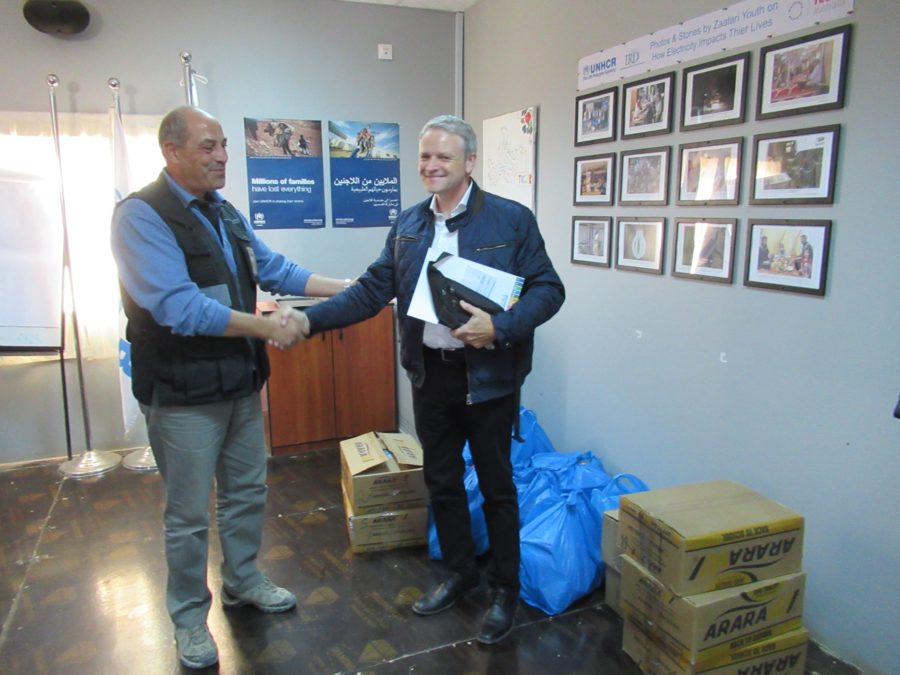
As a practical part of the 12th Defence Attaché course in Amman, participants visited the Zaatari Refugees Camp as part of a simulated DA tour.
![[REPOST – GCSP.ch] – Successful Start of the 12th Defence Attaché Course in Amman [REPOST – GCSP.ch] – Successful Start of the 12th Defence Attaché Course in Amman](https://christianbuehlmann.com/wp-content/uploads/2018/11/6983a0300e1c52b87c7263b35762eda4-6ca-900x600.jpg)
Sunday, November 4th, 29 participants from 14 countries attended the opening ceremony for the 12th GCSP’s orientation course for military officers, diplomats and senior officials involved in defence and diplomacy at the Royal Jordanian National Defence College (RJNDC) in Amman.

![[REPOST] – Visite du Chef d’Etat-Major général des Armées du Sénégal au GCSP [REPOST] – Visite du Chef d’Etat-Major général des Armées du Sénégal au GCSP](https://christianbuehlmann.com/wp-content/uploads/2018/09/46cda421431a7928620524b2de6422b2-de8.jpg)
Depuis plus d’une décennie, le GCSP entretient des liens fructueux avec les Forces Armées du Sénégal, notamment avec le Centre des Hautes Études de Défense et de Sécurité (CHEDS) de Dakar créé en 2014. En particulier, depuis 2009, le GCSP organise chaque année à Dakar des cours destinés aux Attachés de défense et hauts fonctionnaires de l’Afrique de l’Ouest actifs dans le domaine de la politique de sécurité et la diplomatie.
Après avoir accueilli le Général de brigade Paul NDIAYE, Directeur du CHEDS, en août 2016, le GCSP avait l’honneur et le grand plaisir de recevoir en ce début de septembre 2018 le Général de Corps d’armée Cheikh GUEYE, Chef d’Etat-Major général des Armées (CEMGA) du Sénégal, accompagné de son aide de camp et d’un officier supérieur.

C’est en fait une fauvette mâle à tête noire (Sylvia atricapilla).
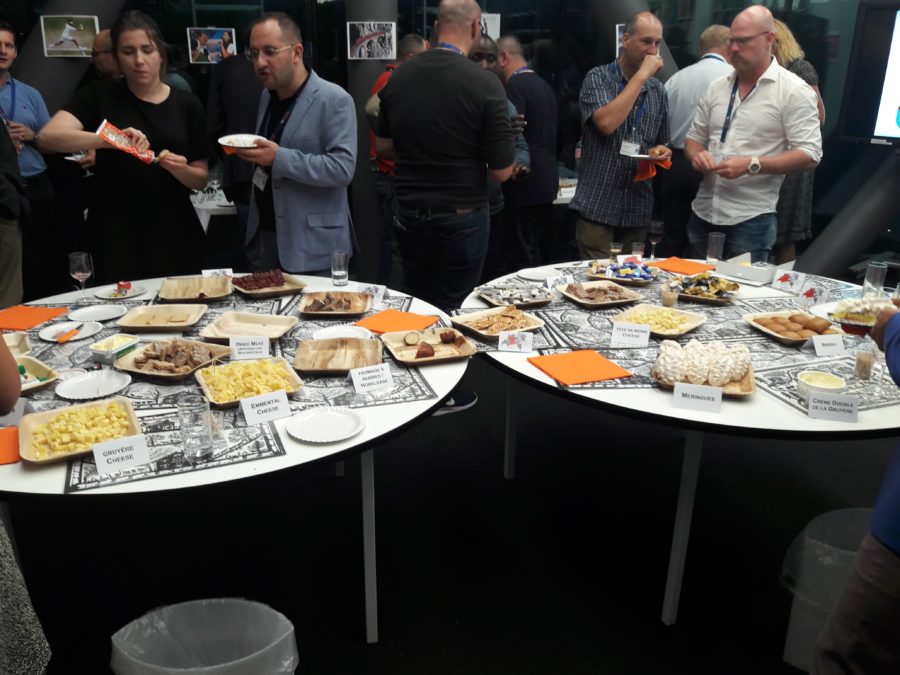
The participant were introduced to Swiss institutions, Swiss History, Swiss Facts, And Swiss Geography. They also pictured their perception of Switzerland. I stressed the complexity and the stability of the Swiss system.
About CENTROC:
Commanders and Legal Advisers play a pivotal role in implementing the Law of Armed Conflict (LOAC), Human Rights Law (HRL) and rules governing the Use of Force in military operations. To discharge their operational tasks fully, they are increasingly required to understand the key legal principles at commanding levels and to apply them in both planning and execution. As a result, co-operation between commanders and legal advisers is also essential.
This international workshop is organised by Switzerland, in partnership with the GCSP, within the framework of the PfP Partnership Work Programme, Chapter XIII. It focuses on the current operational challenges, on case studies and practical exercises, preceded by contextual in-briefs by international experts and practitioners with operational experience.
![[REPOST] -Lieutenant General Jan Broeks, NATO DGIMS, Visits the GCSP [REPOST] -Lieutenant General Jan Broeks, NATO DGIMS, Visits the GCSP](https://christianbuehlmann.com/wp-content/uploads/2018/09/e1e38d35e5b47f6763b9372928945b50-cea.jpg)
During the following discussions, Gen Broeks expressed his interest for centres activities. He also underlined the advantage one gains through multinational trainings because, after a course, participants have created a long lasting network. He concluded by raising the importance of Humanitarian Law in modern conflicts and the need for an effective reform and governance of the security sector in conflict ridden regions.
According to NATO, the DGIMS “is responsible for the coordination between the decision-making bodies of the Alliance, the two Strategic Commanders, national military from NATO and Partner countries working in Brussels, and the civilian International Staff, that support the Secretary General and the North Atlantic Council, in order for the IMS to provide the best possible policy advice to the to the Military Committee”.
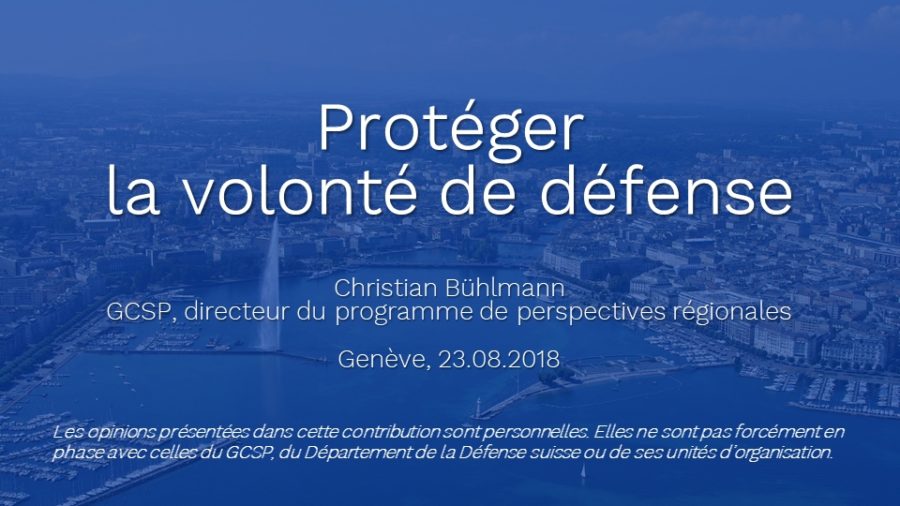
J’ai présenté une contribution au Emergency Forum 2018, consacré à l’infrastructure critique. J’affirme qu’au delà de la dimension technologique, la volonté de défense représente un élément incontournable à l’engagement militaire. Il faut la préserver, dans une démarche tournée vers le sens.









